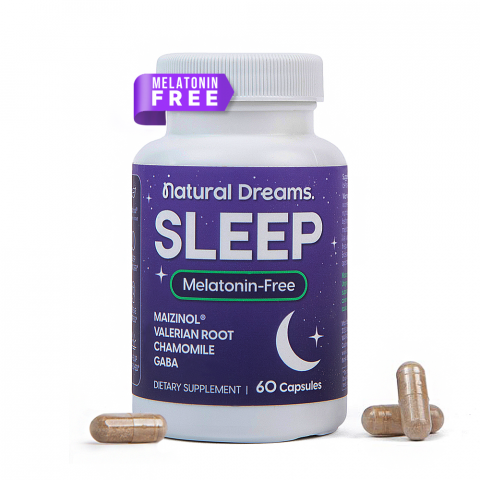 23Feb
23Feb
Melatonin is a hormone produced naturally in the body that plays a crucial role in regulating sleep-wake cycles. While it is commonly used as a supplement to aid sleep, over-relying on it can pose serious risks to one's health and well-being.
What Is Melatonin?
Melatonin is a hormone produced by the pineal gland in the brain. It plays a vital role in regulating the body's internal clock, also known as the circadian rhythm. This rhythm controls the sleep-wake cycle, signaling to the body when it's time to sleep and when it's time to wake up.
How Does Melatonin Work?
Melatonin levels typically rise in the evening as it gets darker, signaling to the body that it's time to prepare for sleep. It helps regulate the body's internal clock and synchronize it with the natural day-night cycle. Melatonin supplements work by mimicking the effects of natural melatonin, promoting relaxation and drowsiness.
Melatonin Supplements
Melatonin supplements are commonly used to treat sleep disorders such as insomnia and jet lag. They are available over the counter in various forms, including pills, gummies, capsules, and liquid drops. While they can be effective in helping some people fall asleep, it's essential to use them cautiously and under the guidance of a healthcare professional.
Potential Dangers of Over-Reliance
Over-relying on melatonin can lead to several potential dangers. One of the main concerns is the risk of developing a dependency on the supplement. Relying on external sources of melatonin can disrupt the body's natural production of the hormone, leading to decreased levels of natural melatonin over time.
While melatonin is generally considered safe for short-term use, it can cause side effects in some people. These may include drowsiness, headaches, dizziness, and nausea. Long-term use of melatonin supplements may also have more severe side effects, including hormone imbalances and immune system suppression.
Tolerance and Withdrawal
Another risk of over-relying on melatonin is the development of tolerance. With regular use, the body may become less responsive to the effects of melatonin, requiring higher doses to achieve the same results. Additionally, sudden discontinuation of melatonin supplements can lead to withdrawal symptoms, including insomnia and anxiety.
Misuse and Abuse
Misuse of melatonin supplements, especially higher doses of melatonin can also pose risks. Some people may mistakenly believe that taking more melatonin will improve its effectiveness, leading to overuse and potential overdose. Additionally, using melatonin in combination with other medications or substances can increase the risk of adverse reactions and health complications.
While it is great that we have such a readily available supplement that can help us fall asleep, it is important that we know of these risks that would pose a more significant threat to our body from the continued risks of its consumption. Using them occasionally to help you sleep during a flight, or when you have jet lag due to travel can help reset your body clock. Relying on it will make your body more dependent on the supplement. Thus, scientists around the world have been researching and turning into natural alternatives to replace melatonin that would cause less dependency. On the next article we will discuss what natural remedies would suffice in order to replace melatonin and the clinical data behind it.
 US
US  CA
CA 







